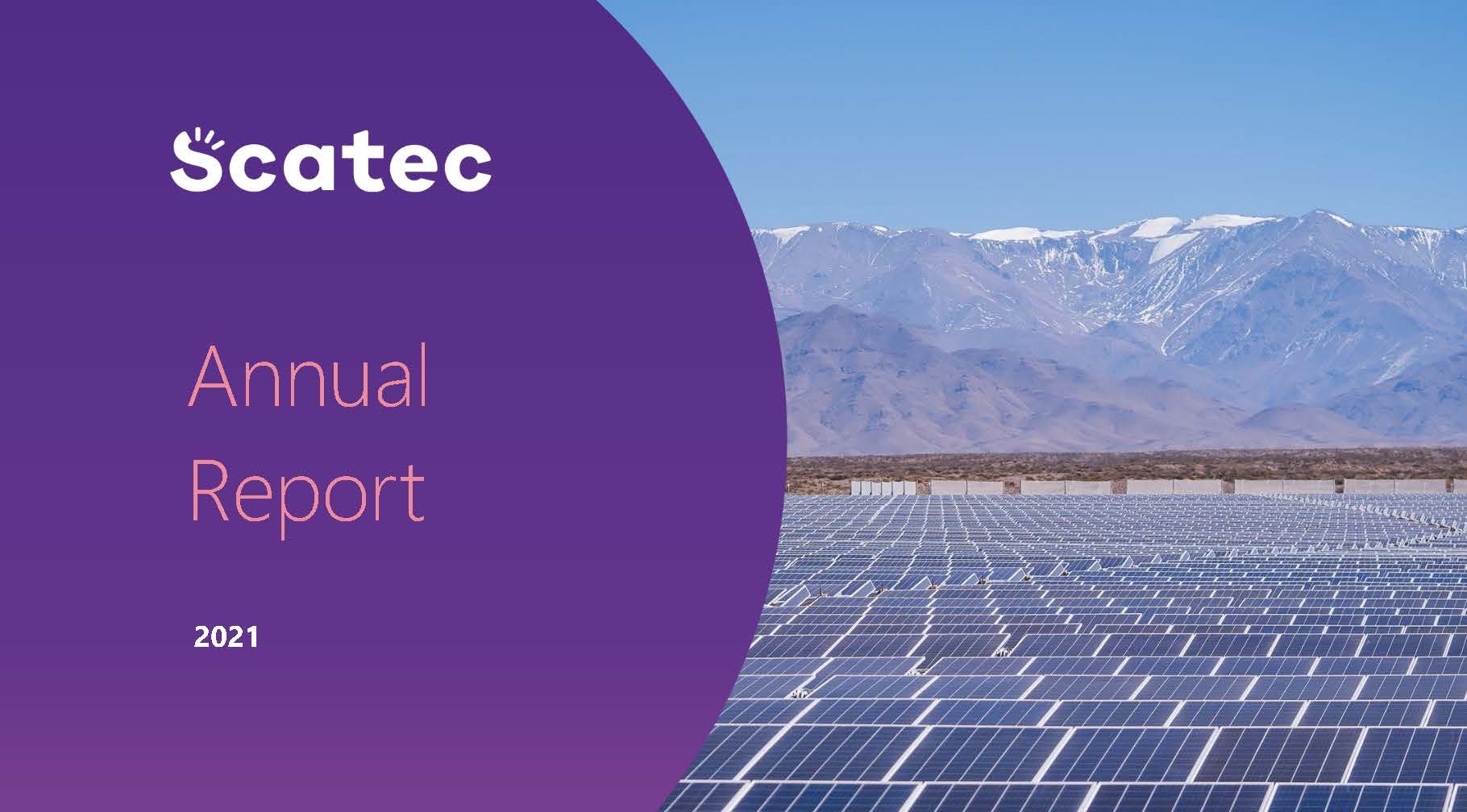Reports

Scatec’s main use of water is in the construction phase for dust suppression and for module cleaning in the operations phase of our projects. Various water sources are used in different locations including groundwater and potable water from municipal water networks.
The amount of water needed depends on several factors such as vegetation, module soiling, natural cleaning due to precipitation and cleaning technologies utilised. For example, in Egypt we use tractors with cleaning brushes that radically reduce the water used for cleaning.
Water used in cleaning will contain dust that was on the panels and will fall to the ground or evaporate without an environmental impact. At some power plants we use biodegradable detergents for cleaning. These are formulated to rapidly degrade to avoid environmental impacts.
Water conservation awareness, minimising water use for dust suppression by maintaining road conditions and monthly monitoring to identify causes of abnormal volumes are among the management considerations implemented at all plants. Efficiency is sought by avoiding unnecessary washing cycles and using effective washing methods like spraying.
The production of solar modules requires large quantities of water. In 2021, we engaged with our two main solar module suppliers on water impacts and their reporting practices. The two suppliers report on water consumption and have targets in place to reduce both water consumption and wastewater discharge.
Substantial amounts of water flow through our hydropower investments. Scatec does not have operational control over these projects, though we have reviewed water basin and flow management practices to ensure alignment with the requirements of the EU Taxonomy.
Water basins management is a local government responsibility, and they also regulate water discharge volumes. Plant operators follow the requirements which are set to ensure minimal ecological flows, balance water availability with flow and to avoid overfilling reservoirs.
Changing seasonal water availability and maximum flow are potential impacts of climate change on the hydropower plants and this will be further assessed in 2022.
One of Scatec’s tractors with brushes cleaning the panels at our Apodi project site in Brazil. In 2021, Scatec completed a 3-year research project with the purpose of improving production efficiency including optimising cleaning. The project was funded by Norges Forskningsråd’s ENERGIX programme and was a collaboration with Equinor, Institute for Energiteknikk and Prediktor.
